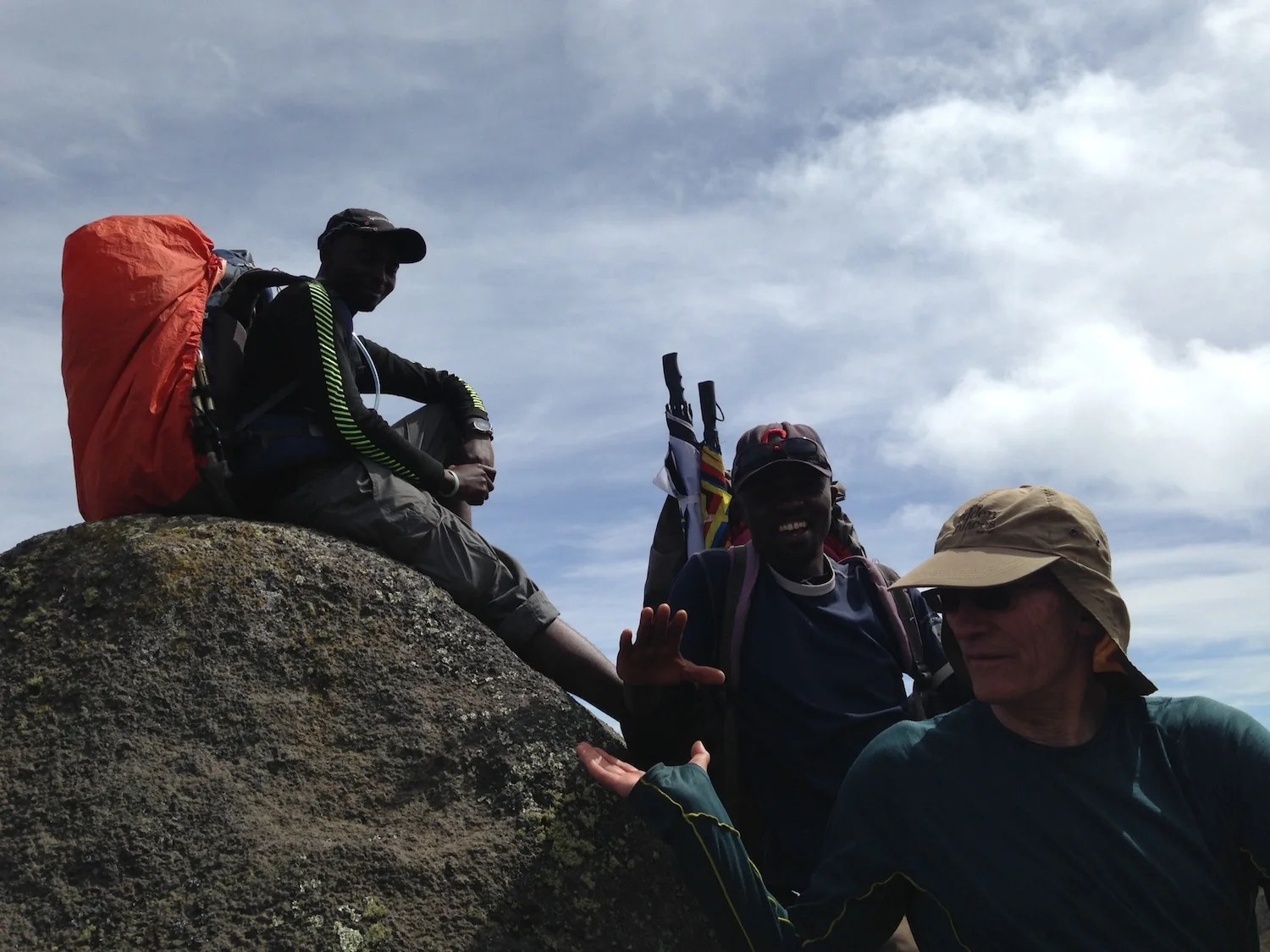What Climbing Kilimanjaro Taught Me About Resilience
So full disclosure - I did not make it to the top of Kilimanjaro. I succumbed to a flu just as we reached base camp and thought better of attempting the summit with a fever and chills.
Gipson, Eden and my dad taking a break
Flu notwithstanding, I have some incredible memories. Most of all, I was amazed by our guides Gipson, Eden, and James. These guys are the epitome of tough and disciplined. Week in and week out, they march (and sometimes carry) people up that mountain. They absolutely know what they're doing. More than that, they know how to get people who don't know what they're doing to the top.
Long days on the mountain gave me lots of time to think. And the more I thought about it, the more I realized that their tips for getting us to the top apply as much off the mountain as they did on the mountain.
So here's what I learned from them that you can apply to get yourself through your own challenges, whether those are literal or figurative mountains.
1. Take it one step at a time
We learned pretty quickly that there was no point in asking Gipson how much longer or how much further we had to go. His answer was always the same: "one more second, one more step."
His philosophy is a sound one. When the final destination is a long way off (and it's going to be grueling to get there), better to focus on what's right in front of you. While it's tempting to concentrate on the end goal, it can also feel daunting. When the task in front of you is huge and stressful, thinking about the end can overwhelm you. You can quickly descend into a "how am I ever going to..." and "I don't think I can do this" tailspin and lose your confidence.
You see all the things you have to do before the finish line and it feels like too much. To avoid this kind of overwhelm, just look one step in front. Rather than think about everything you have to do, think about the next thing you have to do.
2. Mentally rehearse the process, not the result
Okay, so you're focused on your next steps, now what?
Picture yourself completing that step.
Notice I said completing, emphasis on the ing. Not completed, completing.
Every evening, we'd get a briefing about the next day's hike - what to wear, how far and how steep we'd be hiking, and what we needed in our day packs. And these briefings were well... brief. If we asked about the day after, Gipson would smile and say "I'll tell you tomorrow." Before starting out, we'd been given an overview of the whole hike but once we were up on the mountain, we got the information we needed when we needed it. And as preoccupied as we were with the summit, we didn't need that information until day 4.
Not easy for a day-dreamer like myself who loves to imagine being at the finish line more than getting to the finish line. But it turns out, that's exactly the right way to use mental rehearsal.
A couple of researchers (Pham & Taylor, 1999) compared whether it was more effective to mentally rehearse what it will feel like when you achieve your goal (e.g., finally getting a permanent contract with your organization after years of short-term ones) or what you need to do in order to achieve your goal (e.g., writing all those cover letters and sending in all those applications). What works better - imagining the process or the result?
While the result may be more fun to think about, mentally rehearsing the process is a better strategy. If you visualize yourself doing the work to get to your goal, you'll work harder and do a better job than if you visualize yourself having already achieved your goal.
3. Accept help
My last bit of mountain wisdom: let people help you. We were offered help over and over - help carrying our packs, help getting packed up, help of all sorts. And almost without thinking, we refused it. Any offer that would lighten our loads or make things easier, we turned down. After saying no to someone who had walked 15 minutes to come help me with my pack, I got to thinking - why am I refusing?
Part pride, part guilt. I didn't want to seem weak or incapable and I didn't want to impose on someone else. I wanted to do it for myself.
Now I'm all for being self-sufficient under normal conditions. There is a value in feeling like you accomplished something on your own. But when things are really tough, you have to ask yourself, is your ego more important than the task at hand?
Helping has other benefits too - for both the giver and the receiver (more about that in another blog post). It's ultimately a social behaviour so rather than being an imposition, it builds connection and strengthen bonds. And those connections help us persevere through difficult times.
So that's it. My hard-earned tips for getting up virtual and actual mountains. I'll be back to Kilimanjaro next year to make another attempt. In the meantime, let me know in the comments below what you do to scale your own mountains.

